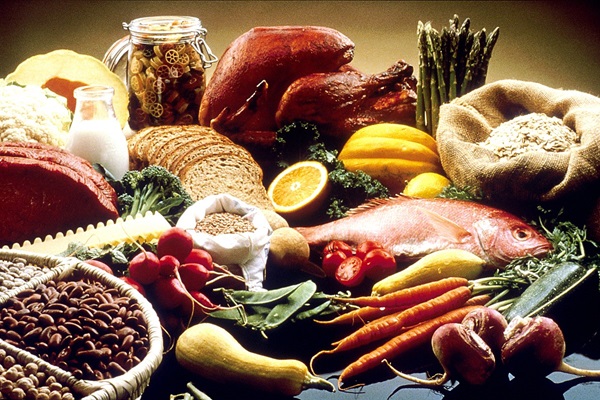
As the country battles rising cases of kidney failure, cancers and unexplained chronic illnesses, experts are drawing urgent attention to a silent threat poisoning Nigeria’s food chain.
In a recent interview on Arise News’ Newsnight, clinical pharmacist Sunday Olatunde raised concerns over the growing use of industrial chemicals such as formalin and calcium carbide in food preservation and ripening practices across informal markets.
Olatunde warned that Nigeria’s largely unregulated informal economy has created significant loopholes in food safety oversight. With minimal enforcement, especially in rural areas, unsafe and often deadly chemical practices are infiltrating the nation’s food supply with far-reaching consequences for public health.
He described the use of formalin, a substance commonly used in laboratories and morgues to preserve cadavers, as especially dangerous. Formalin contains formaldehyde, a well-documented carcinogen, and is not approved for any food-related use. Despite this, some vendors reportedly apply it to frozen meat and fish to prolong shelf life and maintain appearance, especially in markets lacking adequate refrigeration.
“Formalin is a toxic chemical. Its prolonged ingestion is linked to a range of severe illnesses, including liver and kidney failure, certain cancers and blood disorders like leukemia. It has no place in food handling, yet it is being used casually and without accountability,” Olatunde said.
Equally troubling, he explained, is the use of calcium carbide to artificially ripen fruits. This chemical, primarily used in welding and industrial applications, releases acetylene gas which accelerates the appearance of ripeness. However, the compound may contain traces of arsenic and phosphorus, both highly toxic to humans.
“Fruits ripened with calcium carbide may look appealing but pose serious risks. Regular exposure can lead to neurological issues, gastrointestinal complications, kidney dysfunction and other systemic problems,” he said.
Olatunde highlighted that these unsafe practices are especially prevalent in roadside fruit stalls and local markets, where vendors often lack proper education about the substances they use. As a result, unsuspecting consumers are regularly exposed to carcinogens and toxins through basic, everyday meals.
He noted with concern that many Nigerians suffering from terminal illnesses or organ failure may never know the root cause. But mounting scientific evidence suggests that harmful substances in food, compounded by improper handling, could be contributing factors.
“This is an invisible epidemic. People are falling ill, and we are treating symptoms without addressing the underlying environmental and dietary contributors,” Olatunde emphasised.
To stem this growing threat, he recommended a multi-faceted approach beginning with robust public education. According to him, media houses, schools, religious institutions and local clinics should be engaged to raise awareness about the dangers of consuming chemically treated foods.
He also called for tougher enforcement by agencies such as the National Agency for Food and Drug Administration and Control (NAFDAC) and the Federal Ministry of Health. Market inspections, chemical residue testing, and stiff penalties for violators must become routine.
Olatunde further stressed the importance of offering safe alternatives. He advocated for training and incentives for farmers and vendors to adopt traditional preservation methods and natural ripening techniques. These include the use of natural cooling systems, plant-based preservatives and controlled climate storage.
Additionally, he urged collaboration with universities and research centres to track the long-term health impacts of chemical contamination in food. Data from such studies can guide effective policies, consumer protection regulations and intervention strategies.
“This is not just about controlling vendors. It is about safeguarding millions of lives and rebuilding public trust in what we eat. Every meal treated with these toxins is a gamble with health,” he said.
He added that coordinated action between key regulatory agencies is vital. The Standards Organisation of Nigeria (SON), NAFDAC and the National Orientation Agency (NOA) must collaborate to extend food safety campaigns to grassroots communities where informal practices are most prevalent.
“Many of the people using these substances don’t know the harm. These chemicals are introduced as ‘normal powder’ or preservation helpers. That’s what they believe,” Olatunde said.
NAFDAC, in response to growing concerns, has taken steps to combat these illegal practices. The agency has issued strong public warnings against the use of calcium carbide in ripening fruits and conducted awareness campaigns across major fruit markets, particularly during peak consumption periods like Ramadan.
Sensitisation workshops have been organized to educate fruit traders and local vendors on the dangers associated with formalin and calcium carbide. These sessions emphasise the risks of kidney damage, cancer, and hypertension linked to chemical exposure through food.
In addition to education, NAFDAC has carried out enforcement actions. These include raids on markets, seizure of fruits ripened with calcium carbide, and the destruction of contaminated food items. The agency is also leveraging its legal mandate under the NAFDAC Act to regulate the manufacture, distribution, sale and use of food and chemical substances.
Despite these efforts, major challenges remain. Many rural communities and informal markets operate beyond the reach of regulators. The absence of structured market systems and the lack of awareness among vendors continue to undermine enforcement.
Recognizing this gap, NAFDAC has called for deeper cooperation between government bodies, civil society organisations and local leaders. Such partnerships, the agency argues, are key to ensuring safe food access for every Nigerian, regardless of economic status or location.
The fight against food poisoning through toxic chemicals cannot be won overnight. It requires sustained advocacy, behavioural change, and policy reform. However, experts insist that the time to act is now.
Olatunde concluded with a powerful reminder: “Food should nourish, not harm. Every Nigerian deserves to eat without fear. This is not just a public health issue, it is a national emergency hiding in plain sight.”

